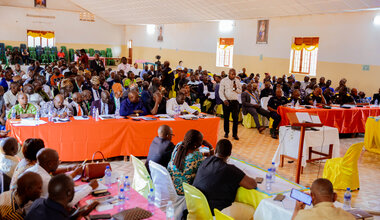My 8 favourite things about being a peacekeeper
On 8 March, International Women’s Day, Major Samia Rehman from Pakistan shares her 8 favourite things about working as a UN peacekeeper. She serves as an operational planning officer with the UN Stabilization Mission in the Democratic Republic of the Congo (MONUSCO).
Serving under the Blue Helmet and wearing the Pakistani flag in a UN peacekeeping mission is an honour for me. My work is my passion. I believe that if you are a woman of integrity and you love what you do, you will always conquer your fears. You also need commitment, dedication, strength and passion to succeed in this job. As a woman serving outside the borders of my country, I encourage all women to participate in peacekeeping.
Here are 8 things I love about my job:
1. PROTECTING CIVILIANS FROM VIOLENCE
Nothing is more important for me than the laughter on the faces of Congolese children, women, and men. Being a woman, a female peacekeeper, I deeply understand the suffering of Congolese women. I’m working to protect citizens under imminent threat in five provinces in the Democratic Republic of the Congo (DRC) — Ituri, North-Kivu, South-Kivu, Tanganiyka and Kasai. I have also worked to protect civilians in Goma and facilitated the roll-out of a Protection of Civilians toolkit. By deploying peacekeeping troops on the ground, my team and I are making communities in the DRC safe for others to deliver humanitarian assistance. As part of my job, I take measures to ensure security in and around camps for internally displaced persons (IDPs), so that one day they can return home in a manner that is safe, voluntary and dignified.
My work also involves the planning of peacekeeping troops throughout the DRC to help control the violent clashes and disputes between communities, and to deter armed groups from violence. During my planning, I always make sure that we deploy peacekeepers with the right skills and training on the ground to protect civilians. Such sound planning, along with quick and effective responses by ground forces can help promote a calm situation in many regions of the DRC and ultimately keeps communities safer.
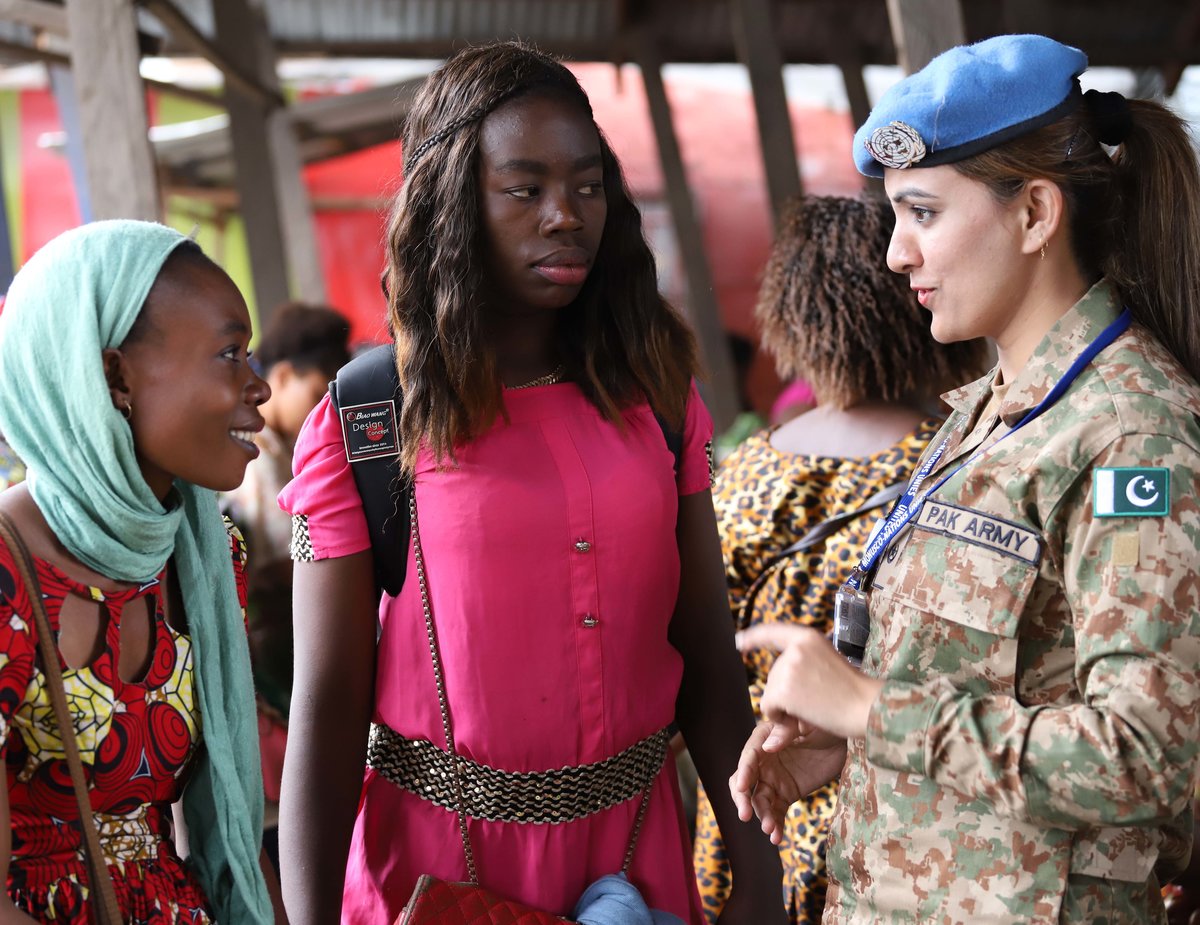
2. COLLABORATING WITH MILITARY, CIVILIANS AND POLICE COLLEAGUES
MONUSCO comprises civilian, police and military components from many parts of the world. Working under the Blue Helmet in close collaboration with different armies, civilians and police colleagues is a wonderful experience. This career has offered varied learning experiences, and over time I’ve learned the operational planning styles of multiple international armies. I am currently working with uniformed peacekeepers of 11 countries, including the United Kingdom, France, Russia, India, Egypt, South Africa, Bangladesh, Uruguay, Gambia and Ghana, in addition to Pakistan. I get to see how various elements of a peacekeeping mission, government forces as well as people from all over the world work together for one important cause: promoting peace.
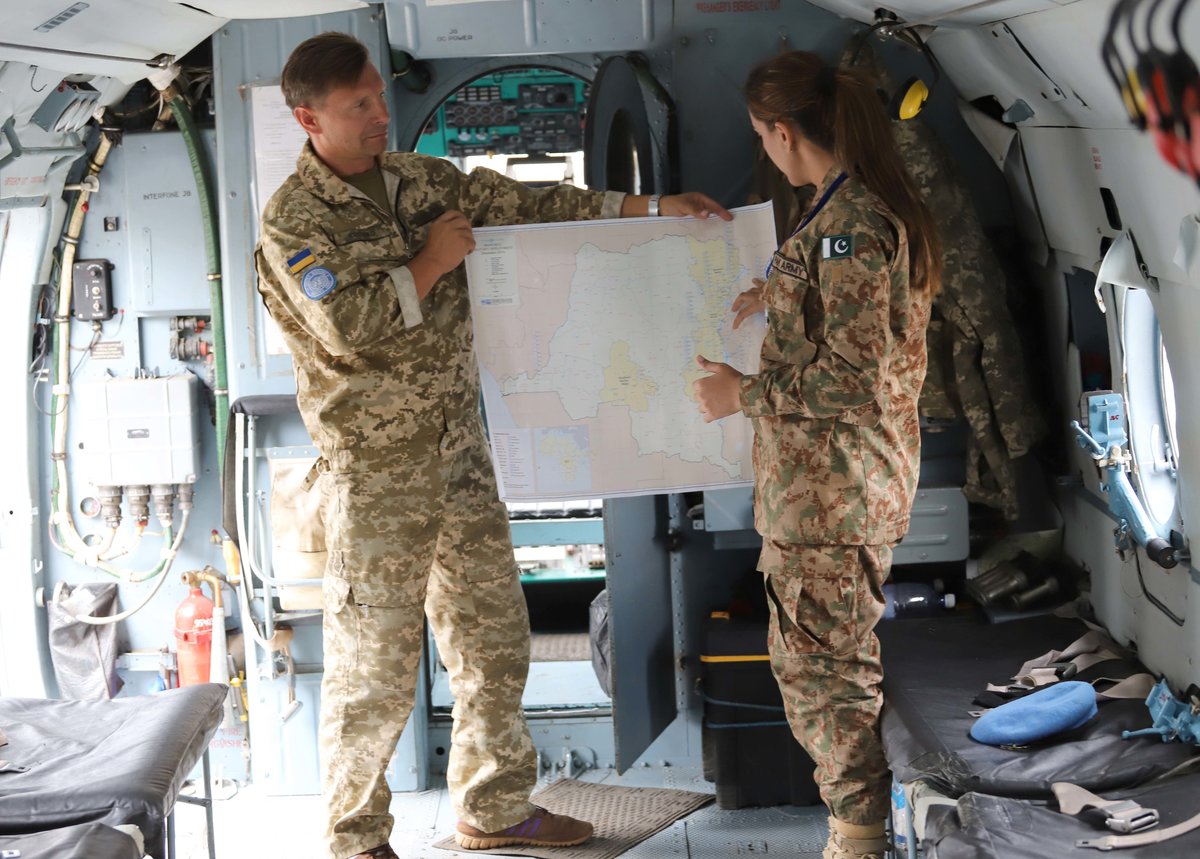
3. LEARNING ABOUT DIFFERENT CULTURES
While it’s difficult for me to live so far away from my family, I do enjoy spending time with my colleagues, who all have diverse backgrounds and traditions. I’ve learned about their cultures, and to respect and adapt quickly to different approaches to both work and social life. I now take on board their diverse cultures even in my operational plans.
4. INTERACTING WITH THE CONGOLESE PEOPLE
I spend a lot of time within the Congolese community — for me it’s important to be in regular contact with the people we serve and really try to understand their difficulties. Congolese women seem to interact more easily with women peacekeepers than with men, so this becomes an important responsibility for women deployed to the DRC.
Things that I like most about the DRC are the music, known as Congolese rumba, soukous and ndombolo, all accompanied by particular dances, as well as the weather, nature, and local chili pepper sauce — known as “piri piri” (or “pepper pepper”) in Swahili. The DRC has all the potential to be a tourist paradise.
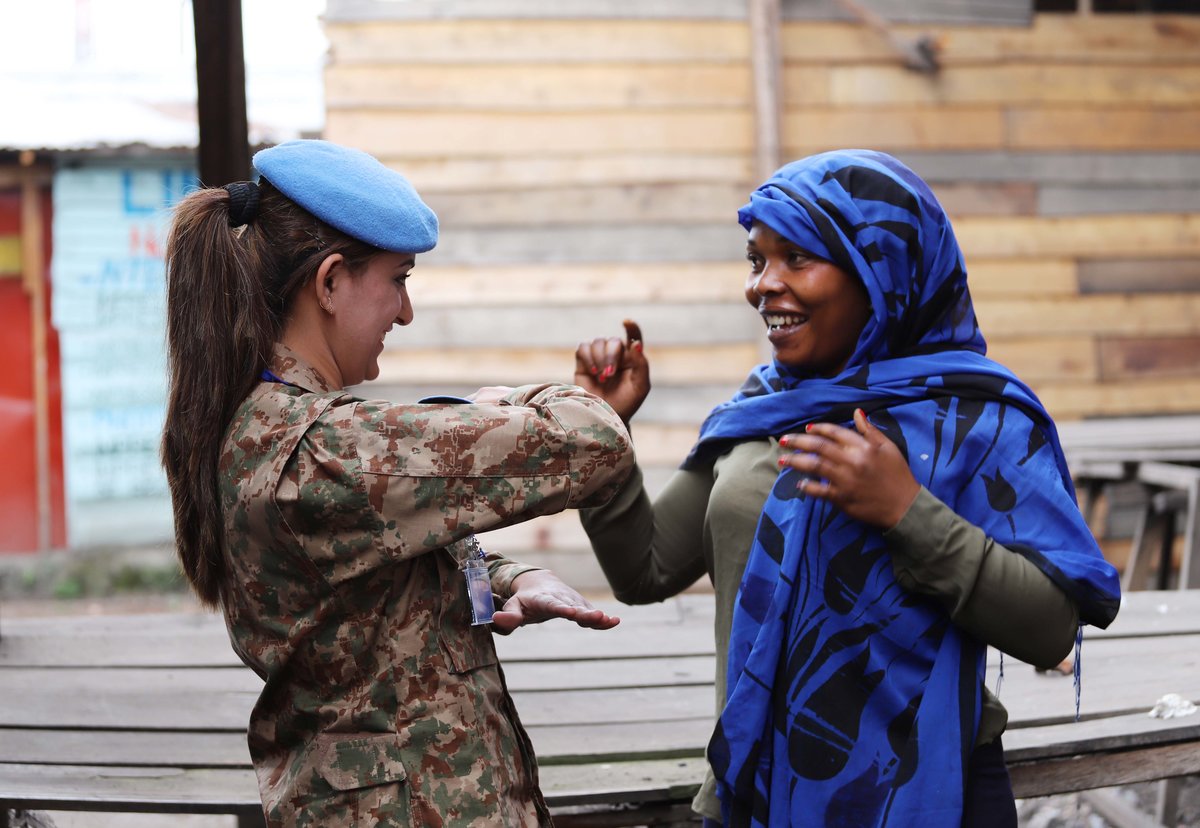
5.PLANNING OPERATIONS WITH SPECIAL FORCES
I have planned various operations with special forces to protect civilians, deter armed groups, reassure the population and to prevent conflict from escalating. This has been an incredible learning opportunity for me professionally.
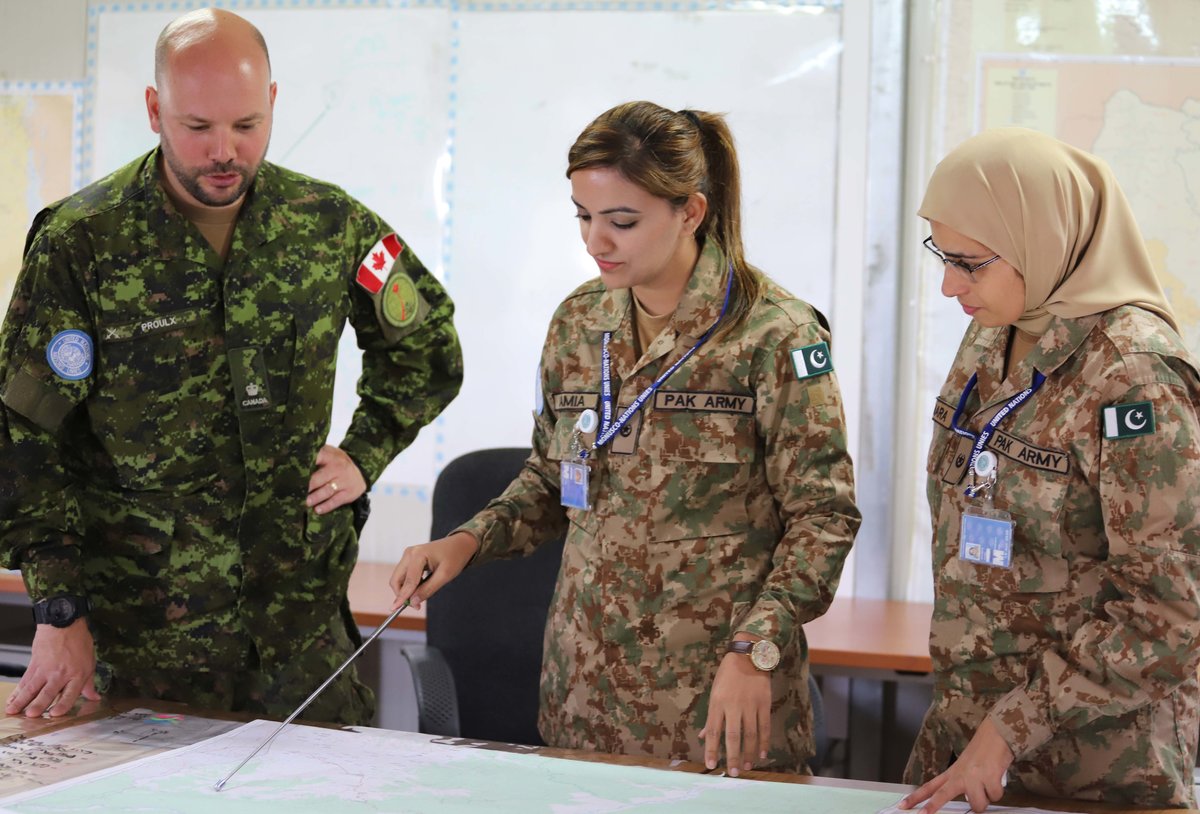
6. WORKING AS A FAMILY
It was a hard decision to leave my two-year-old son behind, but once I saw Congolese children striving for a better future, I decided to work for them. My husband also served in the DRC as a peacekeeper from 2018–2019, and he was part of my motivation. He gave me strength to join this mission, as it was not easy for my family and friends to accept that I would be away from them for a year. Working in a peacekeeping mission is one of the best experiences I have ever had as a woman and as a uniformed member of the Pakistani army.
I see the smile of my son in the smiles of Congolese children. It makes me happy to see contentment on the faces of people in the DRC when they meet a uniformed woman wearing a Blue Helmet and working for their peace.
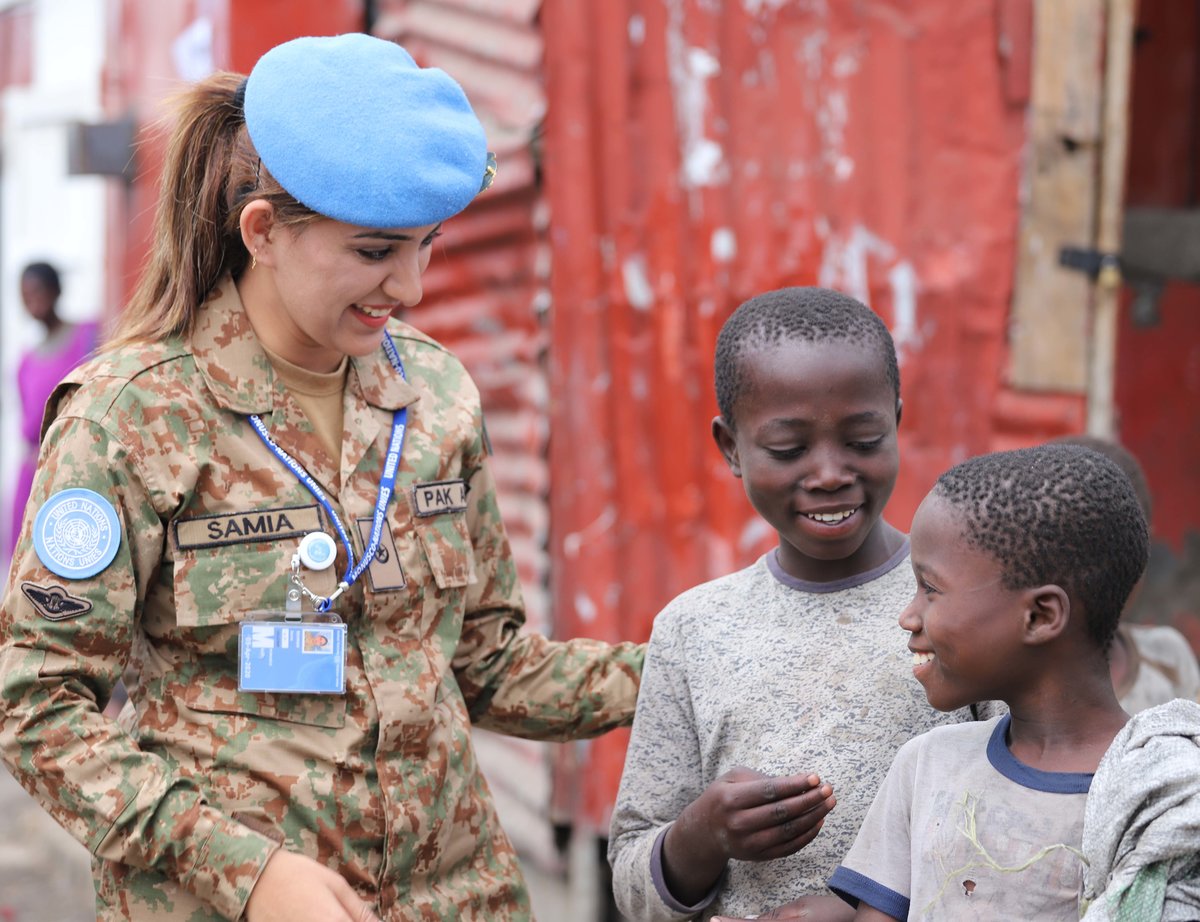
7. DELIVERING A RESEARCH PROJECT WITH THE HAVARD HUMANITARIAN INITIATIVE
I worked with the Harvard Humanitarian Initiative and MONUSCO’s Civil Affairs Section on a project to learn more about what locals and peacekeepers thought about the mission. This was a great experience. We collected high-quality information and identified changes in human security, protection, governance and peacebuilding. With this data, we were able to develop the Protection of Civilians programme, improve early warning and early response systems, and stimulate community-based discussions.
8. RECEIVING AN SRSG APPRECIATION AWARD
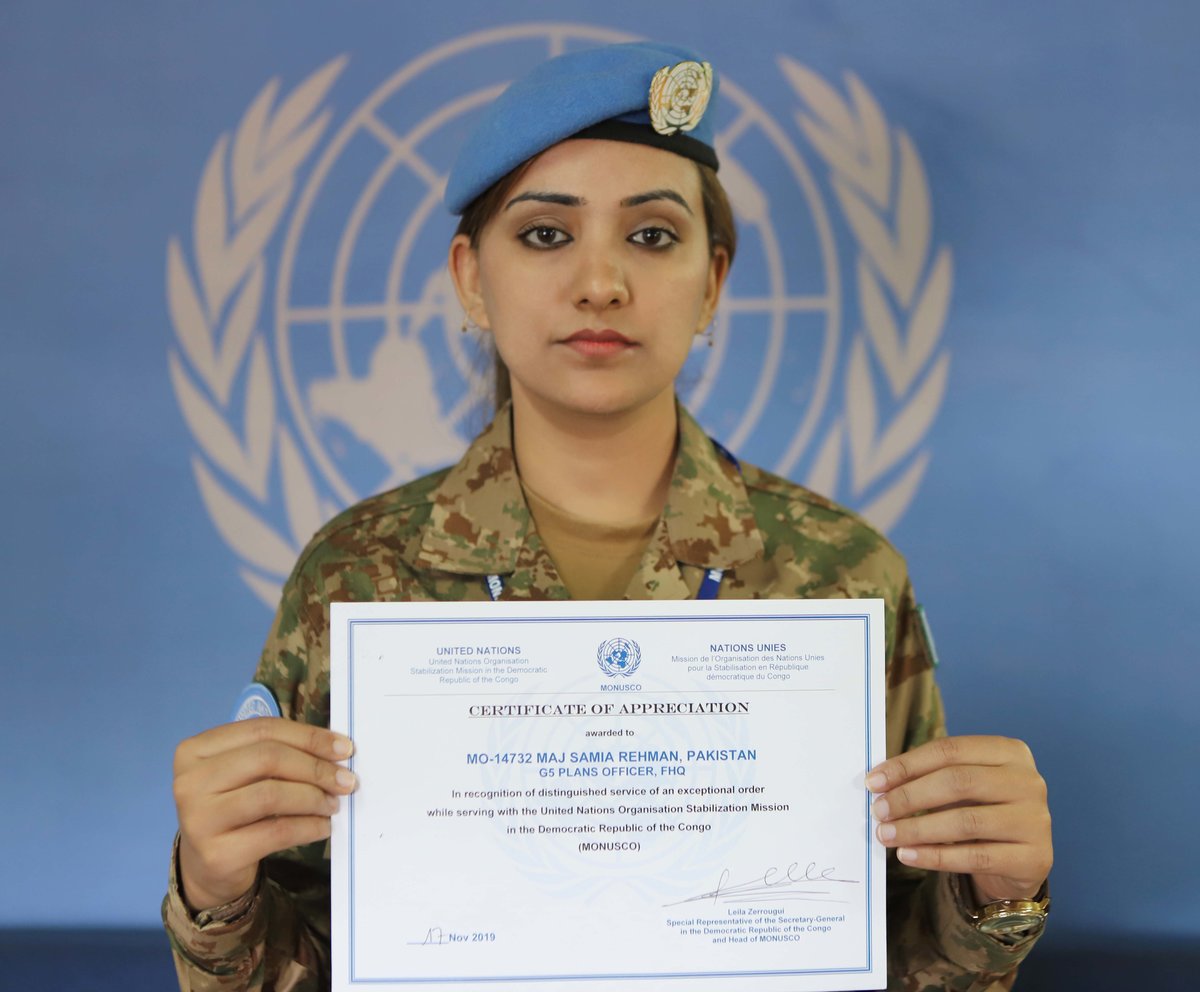
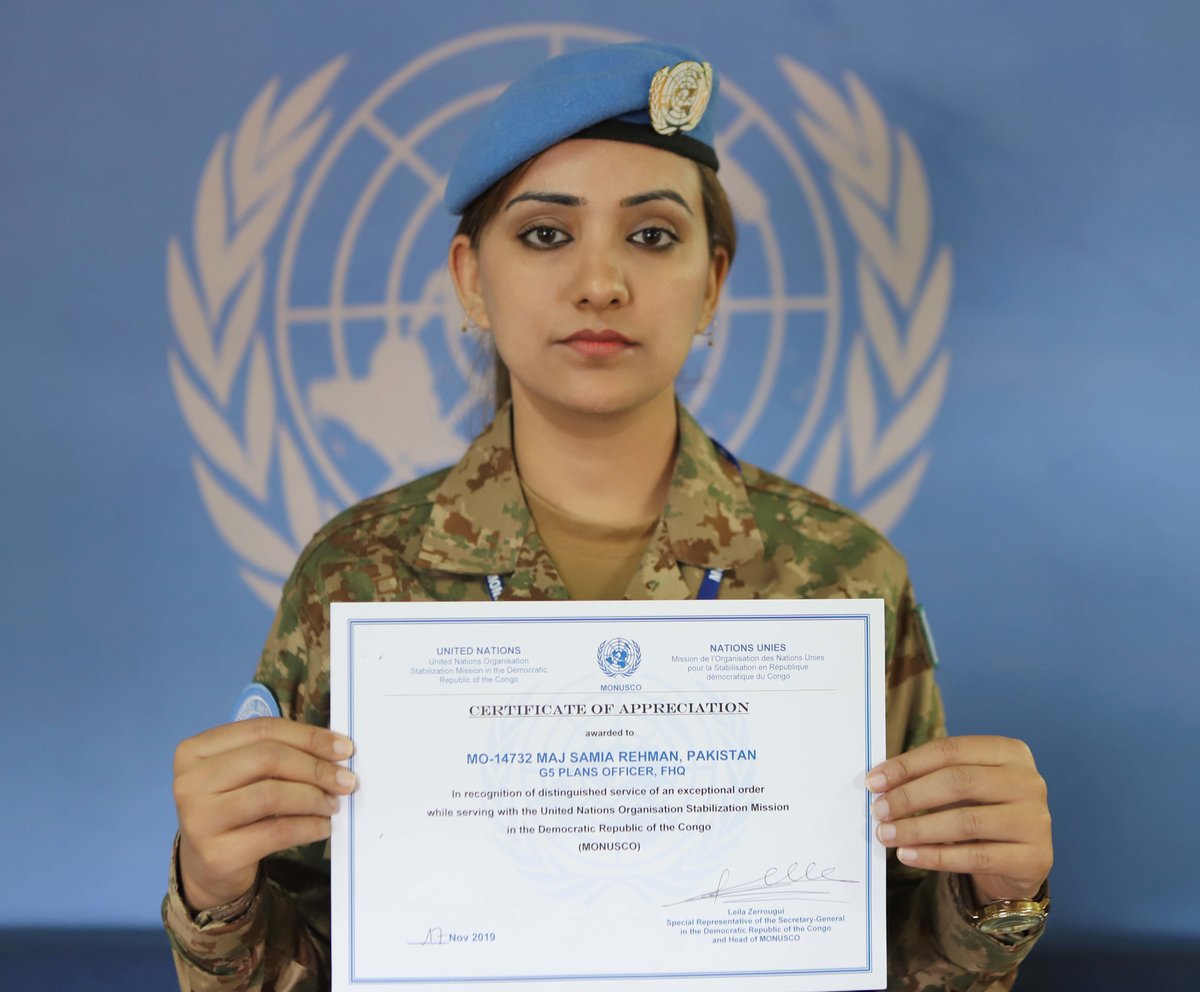
It was a proud moment for me and my country when I was awarded an appreciation certificate from the Special Representative of the Secretary-General (SRSG). I am very thankful to all my seniors and peers for their guidance and teamwork. I’m also grateful for my family’s kind support and endless motivation.
 ONU
ONU Nations Unies Maintien de la paix
Nations Unies Maintien de la paix




